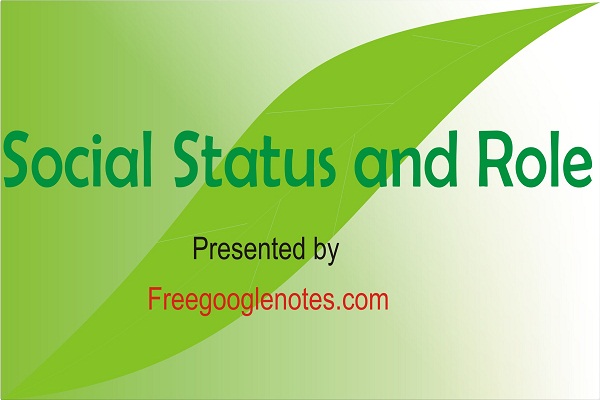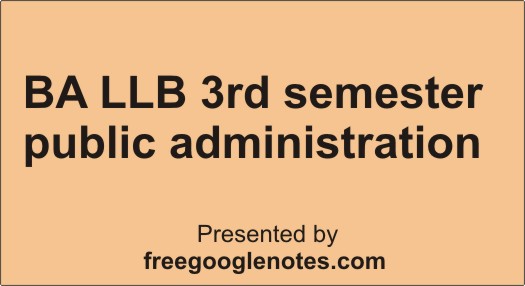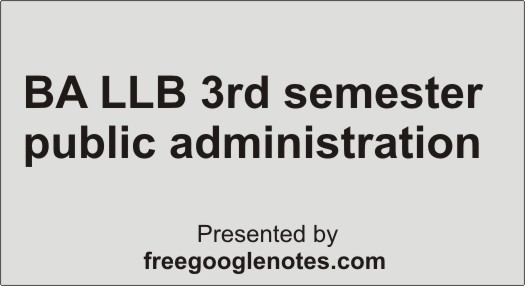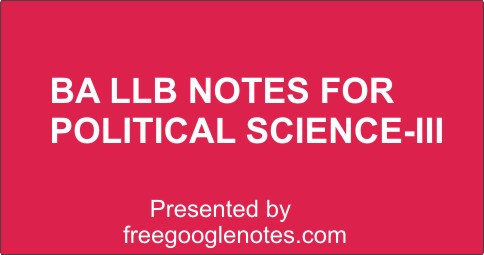Table of Contents
Social Status and role
Hello students and readers
Hello students, and readers,
In the last post, we shared social status pdf and social status store
which may help you in your exam preparation or you want to learn about social status and role.
If you want more, then you can contact us on our Facebook page
Importance of social status
The social status is of much importance for the individual. Marriages in almost every society depend upon social status. It is common knowledge and an everyday occurrence that many marriages are not contracted simply because of differences in the social status or In the financial condition of the parents of the boy and the girl. Everyone
Wants to marry his sons and daughters into a family on an er better footing in society. An individual wins respect in society by virtue of his social status. Every social status is recognisable from symbols of respect. These symbols of respect change along with changes in social status.
An increase in the individual’s social status entitles him to more respect than before irrespective of whether this increase or improvement is due to marriage, or the acquisition of skill in some art of knowledge or due to his having moved into some higher office. The roles of an individual also change along with his social status. Different roles are conjoined to different social status.
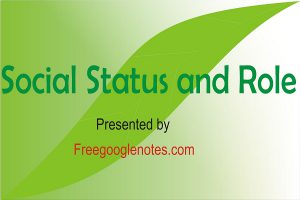
Actually, the very object in having differences in the status within society is to facilitate the division of work among people according to their ability.
Kingsley Davis correctly observes, “Social inequality is thus an unconsciously evolved device by which societies insure that the most important positions are conscientiously filled by the most qualified persons. Hence, every society, no matter how simple, or complex, must differentiate persons in terms of both prestige and esteem.”
At some places, social status grants prerogatives even in the eyes of the law. For example, in England, no one can file a suit against the royal family and in case some involvement does occur the member of the royal family is always above the commoner. In ancient India, the same crimes were punished differently, depending upon the caste of the criminal.
In this way, the individual gets many direct and indirect advantages from social status. This constitutes the importance of status as the basis of social organisation.
Q.1Write short note on Concept of Role.
Ans.
The Concept of Role
Historically speaking, the concept of the role was first introduced by Pareto in 1916. It was he who first recognized the sociological significance of the labels such as lawyers, physicians, engineers, artists etc., which indicate their roles. For Pareto the recognition of labels was a step in the special analysis of social elites.
In 1920 Max Weber more generally and explicitly analysed the methodological issues involved in the classification of human beings. He pointed out that the understanding of the origin of a society must be preceded by a functionally oriented investigation. It is necessary to know as to what kind of typical action leads to such classification.
From 1925 onwards the term role was and more used by the American sociologists such as W.I. The Burgess and others. The first explicit formulation of the term role advanced by George Mead in his book Mind, Self and Society published
in1934. Ralph Linton formulated the concept in anthropology in his hook The Study of Man, in 1936. Since then the term role is being widely used by anthropologists, sociologists and psychologists.
A most systematic treatment of this concept has been presented by Talkot Parson, Shils and Balesand in their work Working Paper in the Theory of Action, published in 1953. Though some psychologists have demanded the invention of a better term in place of the concept of role, it has not been actually done so far.
According to T.M. Nessvomb, “the concept of role is not very suitable because of its dramatic and literary connotation and the figure-of-speech use it encourages.” S.F. Nadel shares Newcorob’s misgiving about the loose and confuses of the term role. He, therefore, devotes himself to the analysis of the problems of role analysis.
Definitions of Role
(1) “Social roles are part and parcel of an individual’s behaviour when interacting with other people in various situations. Every social situation has a role expectancy for us to fulfil.”
(2) “A set of expectations and behaviours associated with a specific position in a social system.”
(3) “A role represents the dynamic aspect of a status … When he puts the rights and duties which constitute the status into effect he is performing, a role. Role and status are quite inseparable, and the distinction between them is of only academic interest.”
(4) “As already indicated, the role concept is basically a type of class concept. Like the class concept of Logic, it labels and brings together numbers of individuals, human beings in out case virtue of certain properties they have in common.”
(5) “Ex definitions” the role concepts has to do with behaviour or differential behaviour, and the characteristics constituted by it.”
(6) “There are no roles without statues or statuses without roles, role representing the dynamic aspect of status.”
(7) “The role is status translated into action, the role being the processual aspect of status, as status is the positional aspect of the role.”
Problems of Role Analysis
Explaining the importance of the concept of role S.F. Nadel has pointed out, “Its usefulness, in simplest terms, lies in the fact that it provides a concept intermediary between ‘society’ and `individual.
It operates in that strategic area where individual behaviour becomes Social conduct, and where the qualities and inclinations distributed over
According to S.F. Nadel, the role concept is basically a type of class concept. It labels and brings together a number of individuals. It always refers to existing real human beings. These human beings are classified broadly
according to two types of properties: 1. Contingent properties which include physiological characteristics over which the individual has no control, such as sex, age, physiological characteristics etc. 2. Achievement properties which the individual is free to assume and aim at such as interests, attitudes, proficiencies etc.
Q.2. Write a short note on- Role and Status.
Ans. Role and Status
A role must have a helo effect, without it is reduced to a label or category. An example of this helo effect in a role is the concept of a bureaucrat. This is true about a role in the full sense of the term. However, certain terms bearing the label of roles might be in fact what Nadel calls, “Non-roles or near roles or Quasi roles.”
These have been further defined by him. As he points out, quasi roles may he name uş status. Thus status can be elaborated into roles and roles have a foundation in status. Most of the writers have accepted that roles and status are complimented concepts. Nadel, however, does not agree that the two are interdependent.
Role behaviour is something translated into action. This translation, however, is not all at once, or in a piece. Rather, roles are enacted face by face, occasion by occasion, in a process extending over time. It is translated attribute by attribute. Role behaviour is materialised is interaction settings or situations.
Thus explaining the relationship of role and situations. Nadel concludes, “Thus the relation between role attributes and situations may be of a one-in-all’ or of One-to-one’ kind. But the same role may include both kinds of attributes
Nor does this distinction seem to be relevant any other respect apart from its bearing on role perception.”
Attributes Concerning Role
The attributes describe the internal structure of roles. Different attributes are not equivalent. The attributes concerning roles, according to Nadel, may be classified into the following three main grades:
(1) Peripheral attributes – These are the attributes whose variation or absence does not affect the perception or effectiveness of the role. Thus they are optional and admit alternatives.
(2) Sufficiently relevant – These attributes are firmly entailed in the roles: Their variation or absence makes a difference to the perception or effectiveness of the role by making it imperfect or incomplete.
(3) Basic or pivotal attributes – The absence or variation of these attributes change the whole identity of the role and the interaction it would normally provoke. Thus, “The basic or pivotal attribute is simply the attribute expected to entail the rest of the series.” In its absence, other attributes appear as illegitimate, unexplained or different in meaning
Q.3 Define the role and bring out the different criteria of role differentiation in society.
Explain the Functions of Role differentiation.
Ans. Role refers to the part played by an actor in a particular context. In drama, we speak of the role of a king, servant etc. In life also we have to play different parts in our relations to society. Thus we are fathers, mothers, sons, teachers, employers etc. A person may have to play several roles at the same time in his day-to-day dealings in society such as of a father, son, employer, buyer etc.
The structure of role differentiation in any society is concerned with the structure of distribution of the members of the system among the various positions and activities in the system. A minimum number of role differentiation is a prerequisite for any society’s survival because these are activities in a society which must be performed by certain designated members at a time.
There are nine types of role differentiation in any society. They are :
- Role differentiation on the basis of age – Differences in age are relevant to differences in biological capabilities of persons. This refers to the biological life spans of an individual. On the basis of being, individuals are classified into infants, children, adults and old people. While infants and old people are totally dependent upon other members of society, children may partially support themselves while adults may support the other age groups. Relative age refers to the relative differences in years between two individuals. For example, brothers have role differentiation on the basis of their comparative ages. Roles are differentiated on the basis of relative age because of the different capabilities of individuals according to their age
- Role differentiation on the basis of generation – we mean an individual’s position relative to another individual, to birth in his direct biological line of descent. Role differentiation, on this basis, refers to the roles of father-son, grand children-grand parents etc. The functional explanation for this type of role differentiation lies in the requisite of sexual recruitment and its implications and general differentiation on this basis rests on the recognition of a kinship structure.
- Role differentiation on the basis of Sex – This dist; between males and females. In physiological terms, the sexes differentiated in terms of the roles which members of each of these two types are capable of performing in the production of new of the species.
- Role differentiation on the basis of economic allocation – It refers to the distribution of goods and services among the various members of society. The structure of production includes all structures from whose operation goods and services are allocated to the society. The structure of consumption includes all structures from which operation of goods and services are allocated to the various members. The functional requisite for role differentiations of this type lies in the functional necessity of providing for the physiological adjustment of members of a unit. This includes the provision of food, clothing and shelter. The economic role differentiation is vast and varied. Mainly it consists of the roles of producer, distributor and consumer.
- Role differentiation, on the basis of political allocation: Political allocation refers to the distribution of power over and responsibility for the actions of the various members of the society the involving, on the one hand, the use of coercive sanctions include force. Power is the ability to exercise authority and control over others. Responsibility is the accountability of an individual for his own acts and acts of others. The functional requisite for political allocation is to effectively control disruptive behaviour is possible for a relationship to have mutually equal power and responsibility. Roles the basis of political allocation refer to that of the governors and governed, ruler and citizens. etc. or power holders and responsibility bearers.
- Role differentiation on the basis of religion – Religion refers to the aspects of action directly oriented to ultimate ends. The functional requisite rests on a discussion of a shared and articulated set of goals. Religious roles refer to those of initiators, initiated priests and worshipper, preacher and disciple etc.
- Role differentiation on the basis of cognition – Cognition refers to the knowledge or understanding of a situation or phenomenon. The functional requirements of cognition rest on the requisite basis for cognitive structures. Role differentiation on this basis rests on several bases. The most obvious is the fact that new recruits for society must be taught the various types of cognition necessary to operate in society. This requires the roles of teacher and student. Cognitive differentiation includes the differentiation of technical roles and those dealing with value standards such as that of priest or mother and that of the expert.
- Role differentiation on the basis of the non-human environment:- features of the non-human environment of society such as seasonal, topographical and other factors are subject to extremely wide variations. Therefore, seasonal bases for role differentiation must exist. The functional requisite is the provision of physiological adjustment.
- Role differentiation on the basis of solidarity – The structure of solidarity is a structure in terms of which relationship among the members of a society are allocated according to the content, strength and intensity of the relationship. This involves all types of intimate relations.
-
Conclusion:-
In the above post, we covered completely about Social status and role.
YOU CAN COMMENT US YOUR FEEDBACK IN COMMENT SECTION.





